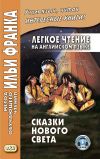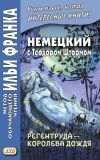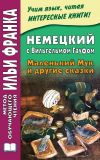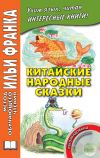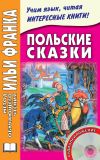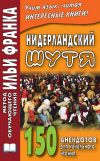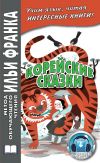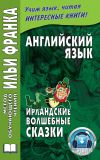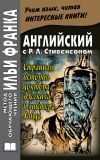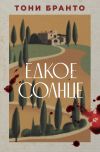Текст книги "Английский с Шерлоком Холмсом. Человек с рассеченной губой / Arthur Conan Doyle. Sherlock Holmes"
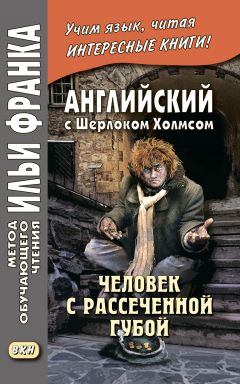
Автор книги: Артур Дойл
Жанр: Иностранные языки, Наука и Образование
Возрастные ограничения: +16
сообщить о неприемлемом содержимом
Текущая страница: 12 (всего у книги 21 страниц)
“They often vanish before the ceremony (они /женщины/ часто исчезают до церемонии), and occasionally during the honeymoon (иногда во время медового месяца); but I cannot call to mind anything quite so prompt as this (но не могу вспомнить, чтобы исчезновение произошло столь быстро). Pray let me have the details (пожалуйста, расскажите мне подробности).”
“I warn you that they are very incomplete (предупреждаю, что они далеко не полны).”
“Perhaps we may make them less so (возможно, нам удастся их дополнить: «сделать их менее неполными»).”
breakfast ['brekfǝst], ceremony ['serɪmǝnɪ], incomplete [,ɪnkǝm'pli:t]
“The vanishing of the lady.”
“When did she vanish, then?”
“At the wedding breakfast.”
“Indeed. This is more interesting than it promised to be; quite dramatic, in fact.”
“Yes; it struck me as being a little out of the common.”
“They often vanish before the ceremony, and occasionally during the honeymoon; but I cannot call to mind anything quite so prompt as this. Pray let me have the details.”
“I warn you that they are very incomplete.”
“Perhaps we may make them less so.”
“Such as they are (как бы то ни было), they are set forth in a single article of a morning paper of yesterday (эти подробности изложены в одной статье вчерашней утренней газеты), which I will read to you (которую я вам прочитаю). It is headed, 'Singular Occurrence at a Fashionable Wedding' (она озаглавлена: «Необычайное происшествие на великосветской свадьбе»):
“'The family of Lord Robert St. Simon has been thrown into the greatest consternation (семья лорда Роберта Сент-Саймона крайне потрясена: «была брошена = повержена в крайний ужас/в величайшее отчаяние»; consternation – ужас; испуг; оцепенение /от страха/) by the strange and painful episodes (странными и прискорбными событиями) which have taken place in connection with his wedding (произошедшими в связи с его свадьбой). The ceremony, as shortly announced in the papers of yesterday (свадьба, как кратко сообщалось во вчерашних газетах), occurred on the previous morning (состоялась предыдущим утром); but it is only now that it has been possible to confirm the strange rumours (но только сейчас можно подтвердить странные слухи) which have been so persistently floating about (так упорно циркулирующие вокруг /этой истории/; to float about – витать, носиться в воздухе /об идеях, слухах и т. п./; to float – плавать; всплывать; держаться на поверхности воды). In spite of the attempts of the friends to hush the matter up (несмотря на попытки друзей замять это происшествие; to hush up – замалчивать, скрывать), so much public attention has now been drawn to it (столь много общественного внимания привлечено к нему) that no good purpose can be served by affecting to disregard (что нет смысла замалчивать то; purpose – намерение, цель; замысел, стремление; to serve a purpose – служить определенной цели; to disregard – не обращать внимания, не придавать значения; пренебрегать) what is a common subject for conversation (что является обычным предметом разговора = о чем все говорят).
consternation [,kɒnstǝ'neɪʃ(ǝ)n], previous ['pri:vɪǝs], disregard [,dɪsrɪ'ɡɑ:d]
“Such as they are, they are set forth in a single article of a morning paper of yesterday, which I will read to you. It is headed, 'Singular Occurrence at a Fashionable Wedding':
“'The family of Lord Robert St. Simon has been thrown into the greatest consternation by the strange and painful episodes which have taken place in connection with his wedding. The ceremony, as shortly announced in the papers of yesterday, occurred on the previous morning; but it is only now that it has been possible to confirm the strange rumours which have been so persistently floating about. In spite of the attempts of the friends to hush the matter up, so much public attention has now been drawn to it that no good purpose can be served by affecting to disregard what is a common subject for conversation.
“'The ceremony, which was performed at St. George's, Hanover Square (свадьба, происходившая в /церкви/ Святого Георгия на Гановер-Сквер), was a very quiet one (была очень тихой), no one being present save the father of the bride, Mr. Aloysius Doran (там никого не было, кроме отца невесты, мистера Алоизиуса Дорана), the Duchess of Balmoral (герцогини Балморалской), Lord Backwater (лорда Бэкуотера), Lord Eustace (лорда Юстаса), and Lady Clara St. Simon (и леди Клары Сент-Саймон) (the younger brother and sister of the bridegroom) (младшие брат и сестра жениха), and Lady Alicia Whittington (и леди Алисии Уиттингтон). The whole party proceeded afterwards to the house of Mr. Aloysius Doran, at Lancaster Gate (все общество позднее отправилось в дом мистера Алоизиуса Дорана на Ланкастер-Гейт), where breakfast had been prepared (где было приготовлено /свадебное/ угощение). It appears that some little trouble was caused by a woman (похоже, произошел небольшой инцидент, вызванный какой-то женщиной), whose name has not been ascertained (чье имя не было установлено; to ascertain – выяснять, обнаруживать, убеждаться, удостоверяться, узнавать, устанавливать; certain – определенный), who endeavored to force her way into the house after the bridal party (которая пыталась проникнуть в дом вслед за приглашенными на свадьбу гостями; to force one's way – протискиваться, проталкиваться, пробираться; bridal – свадебный), alleging that she had some claim upon Lord St. Simon (утверждая, будто у нее есть какие-то права на лорда Сент-Саймона; to allege – утверждать, заявлять /голословно/).
prepared [prɪ'peǝd], ascertained [,æsǝ'teɪnd], alleging [ǝ'leʤɪŋ]
“'The ceremony, which was performed at St. George's, Hanover Square, was a very quiet one, no one being present save the father of the bride, Mr. Aloysius Doran, the Duchess of Balmoral, Lord Backwater, Lord Eustace, and Lady Clara St. Simon (the younger brother and sister of the bridegroom), and Lady Alicia Whittington. The whole party proceeded afterwards to the house of Mr. Aloysius Doran, at Lancaster Gate, where breakfast had been prepared. It appears that some little trouble was caused by a woman, whose name has not been ascertained, who endeavored to force her way into the house after the bridal party, alleging that she had some claim upon Lord St. Simon.
It was only after a painful and prolonged scene (и лишь после тяжелой и продолжительной сцены) that she was ejected by the butler and the footman (дворецкий и лакей выпроводили ее; to eject – выбрасывать; выгонять, выставлять). The bride, who had fortunately entered the house before this unpleasant interruption (невеста, к счастью, вошедшая в дом до этой неприятной задержки; to interrupt – прерывать, мешать; перебивать /говорящего/), had sat down to breakfast with the rest (села за стол вместе с остальными), when she complained of a sudden indisposition (но затем пожаловалась на внезапное недомогание; indisposition – легкое недомогание, нездоровье) and retired to her room (и ушла в свою комнату; to retire – удаляться, «ретироваться»). Her prolonged absence having caused some comment (так как ее затянувшееся отсутствие вызвало недоумение /гостей/; comment – комментарий, замечание; толки, пересуды), her father followed her (ее отец пошел за ней), but learned from her maid (но узнал от горничной) that she had only come up to her chamber for an instant (что мисс Хэтти только на минуту зашла к себе в комнату), caught up an ulster and bonnet (схватила пальто и шляпку; to catch up – схватить, подхватить; ulster – длинное свободное пальто /обычно с поясом/), and hurried down to the passage (и торопливо пошла к выходу; passage – проход, переход; вход, выход). One of the footmen declared that he had seen a lady leave the house thus apparelled (один из лакеев заявил, что видел, как какая-то дама, одетая таким образом, вышла из дома; thus – так, таким образом; apparel – одежда, наряд), but had refused to credit that it was his mistress (но отказался верить, что это была его госпожа = но решил, что это не его госпожа), believing her to be with the company (так как считал, что та сидит с гостями).
On ascertaining that his daughter had disappeared, Mr. Aloysius Doran (убедившись, что его дочь исчезла, мистер Алоизиус Доран), in conjunction with the bridegroom (вместе с женихом; in conjunction with – совместно с, в сочетании с; conjunction – соединение, связь), instantly put themselves in communication with the police (немедленно известили полицию; communication – сообщение /мыслей, сведений, новостей/; общение, связь), and very energetic inquiries are being made (и начались очень активные поиски), which will probably result in a speedy clearing up of this very singular business (которые, вероятно, скоро прояснят: «приведут к скорому прояснению» это крайне необычное происшествие; to result in – иметь результатом; приводить к).
ejected [ɪ'ʤektɪd], caused [kɔ:zd], refused [rɪ'fju:zd], company ['kʌmpǝnɪ], result [rɪ'zʌlt]
It was only after a painful and prolonged scene that she was ejected by the butler and the footman. The bride, who had fortunately entered the house before this unpleasant interruption, had sat down to breakfast with the rest, when she complained of a sudden indisposition and retired to her room. Her prolonged absence having caused some comment, her father followed her, but learned from her maid that she had only come up to her chamber for an instant, caught up an ulster and bonnet, and hurried down to the passage. One of the footmen declared that he had seen a lady leave the house thus apparelled, but had refused to credit that it was his mistress, believing her to be with the company.
On ascertaining that his daughter had disappeared, Mr. Aloysius Doran, in conjunction with the bridegroom, instantly put themselves in communication with the police, and very energetic inquiries are being made, which will probably result in a speedy clearing up of this very singular business.
Up to a late hour last night, however (однако вплоть до /позднего часа/ вчерашнего вечера), nothing had transpired as to the whereabouts of the missing lady (ничего не выяснилось относительно местопребывания исчезнувшей леди; to transpire – испаряться; просачиваться /о газе/; проступать в виде капель; обнаруживаться, становиться известным). There are rumours of foul play in the matter (ходят слухи, что в этом деле не обошлось без насилия; foul play – нечестная игра; преступление, убийство, насилие; foul – грязный; подлый, бесчестный), and it is said that the police have caused the arrest of the woman (говорят, полиция арестовала женщину) who had caused the original disturbance (вызвавшую первоначальное беспокойство; disturbance – тревога, беспокойство, волнение), in the belief that, from jealousy or some other motive (полагая, что из ревности или каких-нибудь других побуждений), she may have been concerned in the strange disappearance of the bride (она могла быть причастна к странному исчезновению невесты).'”
“And is that all (и это все)?”
“Only one little item in another of the morning papers (еще только одна маленькая заметка в другой утренней газете; item – пункт, параграф, статья), but it is a suggestive one (но она наводит на размышления; to suggest – предлагать; внушать /мысль/; вызывать /ассоциацию/; намекать, наводить /на мысль и т. д./).”
“And it is (она о том…) —”
disturbance [dɪs'tɜ:b(ǝ)ns], jealousy ['ʤelǝsɪ], suggestive [sǝ'ʤestɪv]
Up to a late hour last night, however, nothing had transpired as to the whereabouts of the missing lady. There are rumours of foul play in the matter, and it is said that the police have caused the arrest of the woman who had caused the original disturbance, in the belief that, from jealousy or some other motive, she may have been concerned in the strange disappearance of the bride.'”
“And is that all?”
“Only one little item in another of the morning papers, but it is a suggestive one.”
“And it is —”
“That Miss Flora Millar, the lady who had caused the disturbance (что мисс Флора Миллар, дама, вызвавшая беспокойство), has actually been arrested (и в самом деле арестована). It appears that she was formerly a danseuse at the Allegro (кажется, она раньше была танцовщицей в «Аллегро»; danseuse – балерина; танцовщица), and that she has known the bridegroom for some years (и знала жениха = встречалась с женихом несколько лет). There are no further particulars (других подробностей нет), and the whole case is in your hands now (теперь вам известна вся эта история: «вся история в ваших руках») – so far as it has been set forth in the public press (в том виде, как она изложена в прессе; so far as – что касается; поскольку, насколько; to set forth – излагать, формулировать, объяснять; public – общественный; публичный, общедоступный, открытый).”
“And an exceedingly interesting case it appears to be (и она представляется чрезвычайно интересной). I would not have missed it for worlds (я бы не пропустил ее ни за что на свете). But there is a ring at the bell, Watson (но кто-то звонит, Ватсон), and as the clock makes it a few minutes after four (так как часы показывают несколько минут после четырех = так как уже начало пятого), I have no doubt that this will prove to be our noble client (не сомневаюсь, что это окажется наш знатный клиент). Do not dream of going, Watson, for I very much prefer having a witness (не вздумайте уходить, Ватсон, поскольку мне очень нужен свидетель; to dream – видеть сны; мечтать; думать, помышлять; to prefer – предпочитать), if only as a check to my own memory (хотя бы на случай, если я что-нибудь забуду: «в качестве контроля за моей памятью»; if only – хотя бы, если только; check – контроль, проверка).”
danseuse [dɑ:n'sɜ:z], minute ['mɪnɪt], memory ['mem(ǝ)rɪ]
“That Miss Flora Millar, the lady who had caused the disturbance, has actually been arrested. It appears that she was formerly a danseuse at the Allegro, and that she has known the bridegroom for some years. There are no further particulars, and the whole case is in your hands now – so far as it has been set forth in the public press.”
“And an exceedingly interesting case it appears to be. I would not have missed it for worlds. But there is a ring at the bell, Watson, and as the clock makes it a few minutes after four, I have no doubt that this will prove to be our noble client. Do not dream of going, Watson, for I very much prefer having a witness, if only as a check to my own memory.”
“Lord Robert St. Simon,” announced our page-boy, throwing open the door (объявил наш мальчик-слуга, распахивая дверь). A gentleman entered, with a pleasant, cultured face (вошел джентльмен с приятными тонкими чертами лица; cultured – культурный, развитой; утонченный, изящный), high-nosed and pale (с благородным носом, бледный), with something perhaps of petulance about the mouth (с несколько раздражительным выражением губ; petulance – раздражительность; капризность; нетерпеливость), and with the steady, well-opened eye of a man (с твердым, открытым взглядом человека; steady – прочный, твердый; уравновешенный) whose pleasant lot it had ever been to command and to be obeyed (чьей счастливой судьбой было повелевать и встречать повиновение; to obey – подчиняться, слушаться, повиноваться). His manner was brisk (его движения были быстрыми; brisk – живой, проворный; manner – манера, поведение), and yet his general appearance gave an undue impression of age (однако его общий внешний вид производил неверное впечатление возраста = он казался старше своих лет; undue – непомерный; неуместный, неподобающий), for he had a slight forward stoop (так как у него была легкая сутулость: «легкий наклон вперед»; forward – передний, направленный вперед) and a little bend of the knees as he walked (и небольшое сгибание коленей = сгибал колени при ходьбе). His hair, too, as he swept off his very curly-brimmed hat (его волосы, когда он /при поклоне/ снял шляпу с очень загнутыми полями; to sweep off – сметать; уносить; загибаться; to sweep off one's hat – раскланяться, широким жестом сняв шляпу; brim – край /сосуда/; поле /шляпы/), was grizzled round the edges and thin upon the top (оказались седыми на висках: «по краям» и редкими на макушке; thin – тонкий, худой; жидкий, редкий). As to his dress (что касается его костюма; dress – одежда, платье), it was careful to the verge of foppishness (он был чрезвычайно щегольским: «изысканным до грани щегольства»; careful – аккуратный; verge – край; предел; foppishness – дендизм, франтовство, щегольство; foppish – фатоватый, пижонский; fop – фат, хлыщ, щеголь), with high collar (высокий воротник), black frock-coat (черный сюртук), white waistcoat (белый жилет), yellow gloves (желтые перчатки), patent-leather shoes (лакированные туфли; leather – кожа /выделанная/), and light-colored gaiters (и светлые гетры). He advanced slowly into the room (он медленно вошел в комнату; to advance – продвигаться вперед), turning his head from left to right (огляделся по сторонам: «поворачивая голову слева направо»), and swinging in his right hand the cord (и вертя в правой руке шнурок) which held his golden eyeglasses (на котором висело его золотое пенсне; eyeglasses – очки, пенсне).
cultured ['kʌlʧǝd], petulance ['petjʋlǝns], obeyed [ǝ(ʋ)'beɪd], glove [ɡlʌv], leather ['leðǝ]
“Lord Robert St. Simon,” announced our page‑boy, throwing open the door. A gentleman entered, with a pleasant, cultured face, high-nosed and pale, with something perhaps of petulance about the mouth, and with the steady, well-opened eye of a man whose pleasant lot it had ever been to command and to be obeyed. His manner was brisk, and yet his general appearance gave an undue impression of age, for he had a slight forward stoop and a little bend of the knees as he walked. His hair, too, as he swept off his very curly-brimmed hat, was grizzled round the edges and thin upon the top. As to his dress, it was careful to the verge of foppishness, with high collar, black frock-coat, white waistcoat, yellow gloves, patent-leather shoes, and light-colored gaiters. He advanced slowly into the room, turning his head from left to right, and swinging in his right hand the cord which held his golden eyeglasses.
“Good-day, Lord St. Simon (добрый день, лорд Сент-Саймон),” said Holmes, rising and bowing (сказал Холмс, поднимаясь и кланяясь). “Pray take the basket-chair (садитесь, пожалуйста, в плетеное кресло). This is my friend and colleague, Dr. Watson (это мой друг и коллега, доктор Ватсон). Draw up a little to the fire (придвиньтесь поближе к огню), and we will talk this matter over (и обсудим ваше дело).”
“A most painful matter to me, as you can most readily imagine, Mr. Holmes (очень мучительное для меня, как вы легко можете себе представить, мистер Холмс; readily – охотно, быстро, с готовностью; легко, без труда). I have been cut to the quick (я глубоко потрясен; to cut to the quick – глубоко задеть /чьи-либо чувства/; задеть за живое, глубоко уязвить). I understand that you have already managed several delicate cases of this sort, sir (понимаю, что вы уже расследовали несколько щекотливых дел подобного рода, сэр; to manage – управлять/ся/, справляться), though I presume that they were hardly from the same class of society (хотя, полагаю, едва ли /ваши клиенты/ принадлежали к тому же классу общества).”
“No, I am descending (нет, я спускаюсь /на ступень/ вниз).”
“I beg pardon (простите)?”
colleague ['kɒli:ɡ], presume [prɪ'zju:m], society [sǝ'saɪǝtɪ], pardon ['pɑ:d(ǝ)n]
“Good-day, Lord St. Simon,” said Holmes, rising and bowing. “Pray take the basket-chair. This is my friend and colleague, Dr. Watson. Draw up a little to the fire, and we will talk this matter over.”
“A most painful matter to me, as you can most readily imagine, Mr. Holmes. I have been cut to the quick. I understand that you have already managed several delicate cases of this sort, sir, though I presume that they were hardly from the same class of society.”
“No, I am descending.”
“I beg pardon?”
“My last client of the sort was a king (моим последним клиентом /по делу/ такого рода был король).”
“Oh, really (вот как)! I had no idea (я не знал). And which king (какой король)?”
“The King of Scandinavia (король Скандинавии).”
“What! Had he lost his wife (как! и у него пропала жена)?”
“You can understand (вы понимаете),” said Holmes suavely (сказал Холмс учтиво; suave – учтивый, обходительный; вежливый), “that I extend to the affairs of my other clients the same secrecy (что на дела моих клиентов распространяется такая же конфиденциальность; to extend – распространять/ся/; простирать/ся/; выказывать, выражать) which I promise to you in yours (какую я обещаю вам в ваших /делах/).”
“Of course (разумеется)! Very right (/вы/ совершенно правы)! very right! I'm sure I beg pardon (прошу прощения). As to my own case, I am ready to give you any information (что касается моего случая, я готов сообщить вам любые сведения) which may assist you in forming an opinion (которые могут помочь вам составить мнение).”
Scandinavia [,skændɪ'neɪvɪǝ], suavely ['swɑ:vlɪ], opinion [ǝ'pɪnjǝn]
“My last client of the sort was a king.”
“Oh, really! I had no idea. And which king?”
“The King of Scandinavia.”
“What! Had he lost his wife?”
“You can understand,” said Holmes suavely, “that I extend to the affairs of my other clients the same secrecy which I promise to you in yours.”
“Of course! Very right! very right! I'm sure I beg pardon. As to my own case, I am ready to give you any information which may assist you in forming an opinion.”
“Thank you (благодарю вас). I have already learned all that is in the public prints, nothing more (я уже изучил все, что пишут в газетах, /но не знаю/ ничего больше). I presume that I may take it as correct (полагаю, можно считать эти сведения верными) – this article, for example, as to the disappearance of the bride (например, статью об исчезновении невесты).”
Lord St. Simon glanced over it (лорд Сент-Саймон быстро просмотрел ее).
“Yes, it is correct, as far as it goes (да, более-менее верно; as far as it goes – до известной степени, в известной мере).”
“But it needs a great deal of supplementing before anyone could offer an opinion (но потребуется множество дополнительных данных, прежде чем можно будет выразить какое-либо мнение; supplement – дополнение, добавление /к книге, документу и т. п./). I think that I may arrive at my facts most directly by questioning you (думаю, я могу получить сведения быстрее всего, задав вам /несколько/ вопросов; to arrive at – достигнуть, прийти к /чему-либо/; directly – прямо, непосредственно; сразу, тотчас).”
“Pray do so (я к вашим услугам/задавайте).”
“When did you first meet Miss Hatty Doran (когда вы впервые встретили мисс Хэтти Доран)?”
“In San Francisco, a year ago (в Сан-Франциско, год назад).”
glanced [ɡlɑ:nst], questioning ['kwesʧǝnɪŋ], San Francisco [,sænfræn'sɪskǝʋ]
“Thank you. I have already learned all that is in the public prints, nothing more. I presume that I may take it as correct – this article, for example, as to the disappearance of the bride.”
Lord St. Simon glanced over it.
“Yes, it is correct, as far as it goes.”
“But it needs a great deal of supplementing before anyone could offer an opinion. I think that I may arrive at my facts most directly by questioning you.”
“Pray do so.”
“When did you first meet Miss Hatty Doran?”
“In San Francisco, a year ago.”
“You were travelling in the States (вы путешествовали по /Соединенным/ Штатам)?”
“Yes.”
“Did you become engaged then (вы обручились там)?”
“No.”
“But you were on a friendly footing (но вы были в дружеских отношениях; footing – точка опоры, опора; устойчивое положение ног; взаимоотношения)?”
“I was amused by her society (мне было приятно ее общество), and she could see that I was amused (и она это видела).”
“Her father is very rich (ее отец очень богат)?”
“He is said to be the richest man on the Pacific slope (говорят, он самый богатый человек на тихоокеанском побережье; slope – склон, откос).”
“And how did he make his money (а как он разбогател: «сделал деньги»)?”
“In mining (на /золотых/ приисках; mining – горное дело; разработка месторождений; mine – рудник; копь; шахта; прииск). He had nothing a few years ago (несколько лет назад у него не было ничего). Then he struck gold, invested it (потом он открыл месторождение золота, инвестировал капитал в него; to invest – инвестировать, вкладывать денежные средства; помещать капитал; to strike – ударять; открыть, обнаружить, достичь желаемого /внезапно/), and came up by leaps and bounds (и очень быстро пошел в гору; to come up – подниматься, повышаться; вырастать; by leaps and bounds – скачкообразно, очень быстро, стремительно: «прыжками и скачками»).”
“Now, what is your own impression as to the young lady's (а теперь /скажите/, каково ваше впечатление о молодой леди = опишите мне молодую леди) – your wife's character (какой характер у вашей жены)?”
The nobleman swung his glasses a little faster (лорд начал немного быстрее раскачивать пенсне; nobleman – дворянин; аристократ; to swing – раскачивать; размахивать; вертеть) and stared down into the fire (и пристально посмотрел = отвел взгляд на огонь).
Pacific [pǝ'sɪfɪk], money ['mʌnɪ], character ['kærǝktǝ]
“You were travelling in the States?”
“Yes.”
“Did you become engaged then?”
“No.”
“But you were on a friendly footing?”
“I was amused by her society, and she could see that I was amused.”
“Her father is very rich?”
“He is said to be the richest man on the Pacific slope.”
“And how did he make his money?”
“In mining. He had nothing a few years ago. Then he struck gold, invested it, and came up by leaps and bounds.”
“Now, what is your own impression as to the young lady's – your wife's character?”
The nobleman swung his glasses a little faster and stared down into the fire.
“You see, Mr. Holmes (видите ли, мистер Холмс),” said he, “my wife was twenty before her father became a rich man (моей жене было двадцать /лет/, прежде чем ее отец стал богачом). During that time she ran free in a mining camp (в то время она свободно бегала по прииску; mining camp – рудник, шахта; рудничный поселок; camp – лагерь) and wandered through woods or mountains (и бродила по лесам и горам), so that her education has come from Nature rather than from the schoolmaster (так что ее воспитанием занималась скорее природа: «происходило от природы», чем школьный учитель; education – образование; воспитание). She is what we call in England a tomboy (это девчонка-сорванец, как мы называем /таких девушек/ в Англии), with a strong nature (сильная натура), wild and free (бурная и свободная), unfettered by any sort of traditions (не стесненная никакими традициями; unfettered – освобожденный /от оков, пут/; неограниченный; нестесненный; fetter – путы /для животных/). She is impetuous – volcanic, I was about to say (она импульсивна – можно сказать, порывиста: «я собирался сказать, порывиста»; volcanic – вулканический; бурный, горячий, пылкий /о темпераменте и т. п./). She is swift in making up her mind (быстро принимает решения: «быстра в принятии решения») and fearless in carrying out her resolutions (и бесстрашно выполняет задуманное; fear – страх; to carry out – выполнять; доводить до конца; resolution – решение; твердое намерение). On the other hand (с другой стороны), I would not have given her the name (я не дал бы ей имени) which I have the honor to bear (которое имею честь носить)” – he gave a little stately cough (тут он с достоинством кашлянул) – “had not I thought her to be at bottom a noble woman (если бы не был уверен, что по сути это прекрасная, благородная женщина; bottom – дно; основание). I believe that she is capable of heroic self-sacrifice (я верю, что она способна на героическое самопожертвование; sacrifice – жертва, жертвоприношение; to sacrifice – приносить в жертву, жертвовать) and that anything dishonorable would be repugnant to her (и что все бесчестное было бы ей противно).”
mountain ['maʋntɪn], nature ['neɪʧǝ], dishonorable [dɪs'ɒn(ǝ)rǝbl]
“You see, Mr. Holmes,” said he, “my wife was twenty before her father became a rich man. During that time she ran free in a mining camp and wandered through woods or mountains, so that her education has come from Nature rather than from the schoolmaster. She is what we call in England a tomboy, with a strong nature, wild and free, unfettered by any sort of traditions. She is impetuous – volcanic, I was about to say. She is swift in making up her mind and fearless in carrying out her resolutions. On the other hand, I would not have given her the name which I have the honor to bear” – he gave a little stately cough – “had not I thought her to be at bottom a noble woman. I believe that she is capable of heroic self-sacrifice and that anything dishonorable would be repugnant to her.”
“Have you her photograph (у вас есть ее фотография)?”
“I brought this with me (эту я принес с собой).” He opened a locket (он открыл медальон) and showed us the full face of a very lovely woman (и показал нам лицо очень красивой женщины; full face – анфас). It was not a photograph but an ivory miniature (это была не фотография, а миниатюра на слоновой кости), and the artist had brought out the full effect of the lustrous black hair (и художник /сумел/ полностью передать прелесть блестящих черных волос; to bring out – выявлять, обнаруживать; показывать; effect – эффект, /воз/действие; впечатление), the large dark eyes (больших темных глаз), and the exquisite mouth (и тонкого, изящно очерченного рта). Holmes gazed long and earnestly at it (Холмс долго и внимательно смотрел на нее). Then he closed the locket and handed it back to Lord St. Simon (затем закрыл медальон и вернул его лорду Сент-Саймону).
“The young lady came to London, then (потом молодая леди приехала в Лондон), and you renewed your acquaintance (и вы возобновили знакомство)?”
“Yes, her father brought her over for this last London season (да, ее отец привез ее на этот последний сезон). I met her several times, became engaged to her (я встречал ее несколько раз, обручился с ней), and have now married her (и теперь женился на ней).”
miniature ['mɪnɪ(ǝ)ʧǝ], lustrous ['lʌstrǝs], acquaintance [ǝ'kweɪntǝns]
“Have you her photograph?”
“I brought this with me.” He opened a locket and showed us the full face of a very lovely woman. It was not a photograph but an ivory miniature, and the artist had brought out the full effect of the lustrous black hair, the large dark eyes, and the exquisite mouth. Holmes gazed long and earnestly at it. Then he closed the locket and handed it back to Lord St. Simon.
“The young lady came to London, then, and you renewed your acquaintance?”
“Yes, her father brought her over for this last London season. I met her several times, became engaged to her, and have now married her.”
“She brought, I understand, a considerable dowry (полагаю, за ней дали значительное приданое: «она принесла…»)?”
Правообладателям!
Это произведение, предположительно, находится в статусе 'public domain'. Если это не так и размещение материала нарушает чьи-либо права, то сообщите нам об этом.